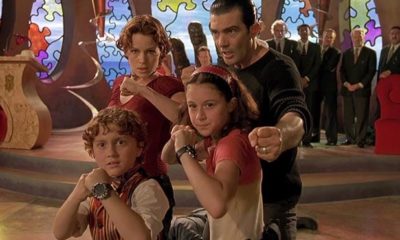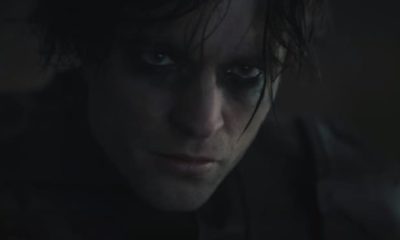Brennan Brown plays “The Man in the High Castle’s” beleaguered antiques dealer Robert Childan, who helps Frank Frink (Rupert Evans) create forgeries to fund his rebel activities. Season 2 will see Frink bring Ed McCarthy (DJ Qualls) into the store — along with more trouble for Childan in this world of Nazi and Japanese rule.
As Brown points out below, Childan is the “prime example” of a central motif in Dick’s original work: The compromises, denials and terrors inside the mind of those on the receiving end of conquest and colonialism — and came away with a respect for the actor and a fascination with the compromised soul he portrays.
We got to speak with Brown at length about the upcoming season of Amazon’s “High Castle,” premiering Friday, Dec. 16. This interview has been edited for clarity and length.
Have you become an expert museum curator through playing Childan?
No — but you know what’s funny is, I actually went and researched some antique dealers in New York before going to play it. I do know more about antiquing than I ever thought I would. I like design and architecture and furniture and that sort of thing, so there’s parts of it that are my own interests that I’m bringing to it as well, so it isn’t totally foreign to me. The whole “searching for authentic artifacts” world was new to me, so I had to research that.
Did anything specific from the research come through in your performance?
Just the manner of how extremely important it is for an antique dealer to be the expert in his own world, whatever it is he’s talking about and what he’s selling. His inventory, he has to know it backwards and forwards. The prominence and relationship to other pieces from the same period and history and that sort of thing, and also the salesmanship.
For Childan, his whole self-worth is wrapped up in trying to be accepted, and I guess loved. He’s just this bundle of needs, and he’s trying to make his way in this society that’s been colonized and conquered by the Japanese forces. He’s bought into that society completely. All of those things come into play in the characterization. I would say that some of the antique dealers that I saw, their specific mannerisms, their way of wiping a desk or cleaning a piece — I actually watched them do some cleaning of pieces, the way they held or handled the objects — I brought that a lot actually, this season.
What can you say about the artifacts Childan and Frink are dealing with this year?
It’s not so much about the artifacts. It’s what they represent for the characters. They’re trying to go into business with the Yakuza, or they get forced into business with the Yakuza. Dire situations result from that. It’s not so much what the objects or the artifacts represent. It’s how they could either make money from them, or try to use them in a business partnership, as a way of staying alive.
Most of your scenes are usually with Rupert. Has it been different having DJ Qualls in the shop this year?
Yeah, definitely. It’s been nice to watch the characters grow. DJ’s character, Ed, is very much not Childan’s normal compatriot. He’s from a different economic class. He doesn’t know anything about culture, he doesn’t know anything about what Childan’s world is, but you get to see their relationship start at this rather antagonistic [place] — at least from Childan’s point of view, he’s not pleased at all — [and] then he begins to see things in Ed that he appreciates. Their relationship grows.
It’s also one of the nice things about this season… You get to see characters interact with other characters in a way that makes them learn things about themselves, and learn things about the other character as well.
Will we see Childan interact with any other characters for the first time?
You will, but not in any way that I can say without revealing spoilerish-type stuff. You do get to see him meet other people and get faced with threatening situations, uncomfortable situations. Deeply uncomfortable.
How does his relationship with Frank deepen?
Well, Frank is kind of getting radicalized within the resistance and getting deeper into that world. I think Childan finds himself caring about Frank despite himself. Really, I think Childan learns about Frank through Ed actually. So from Childan’s friendship with Ed, he begins to understand what Frank has been going through. He kind of has to learn about Frank through another party. Again, it’s another way where the three characters start to interact in a way that teaches them about themselves and each other, so it’s kind of cool — a little triumvirate.
Has playing nervous been an increasing challenge, the more tense things get on “Man in the High Castle”?
Yeah, it is! And also bringing humor to it without ever winking at the audience. That’s a real challenge and a line we really wanted to walk this season. It was really important to me that if something was humorous or funny, it was important to me that it be uncomfortably so, and organically funny. Never playing a joke, or trying to be funny. If I’m trying to be funny in a show like this, it’s just dead. So whatever humor comes from the character has to come from the extremity of his discomfort and the extremity of his nervousness and a true genuine threat.
Also, that’s what’s funny — to me, anyway. Whenever I see comedy that’s played for laughs, it’s not necessarily that funny to me. Comedy that comes out of an organic situation, however ridiculous it may be, that’s actually funny. Like Gene Wilder’s work… How it’s all very grounded and very naturalistic, that’s sort of what I was using as a model for the humor with Childan.
The nervousness is not difficult to play. It’s important that I make the scene make sense to me personally. I have to personalize whatever’s happening so it doesn’t seem like I’m just playing at being nervous. Otherwise it gets false. As long as I’m grounded in the scene, and I believe the stakes and the given circumstances, then the nervousness works. I have to make sure those stakes are very clear for me, as an actor, and that they’re very high. The stakes are as high as possible.
Most of your scenes are in the shop. Do you get to see much of the Reich-ified sets on “Man in the High Castle”?
A lot of times I’ll go and look at stuff just with the designers or with the production staff. They’re so unbelievably incredible. All of the departments on this show are so good. Frequently I’ll be with camera guys and they’ll be like, “Hey, have you seen the set?” We’ll go and look at the next soundstage, and check it out. Then people come in to see Childan’s set all the time because that’s such an incredible set to work on.
Childan’s shop and Childan’s apartment are two of the most beautiful sets I’ve ever seen. The level of detail is totally distinct, just amazing. There’s a huge skylight in Childan’s antique shop — I’m not sure if it’s ever been on camera, but there’s a big skylight on the ceiling, and it’s got dead leaves on it! You look up and you just believe you’re in this shop. It’s just incredible.
And Childan’s apartment: The ceiling is flaking, the wallpaper is peeling. Every time you look around anywhere on that set, you see something new. It just makes it so easy to get into that world. It’s just an incredible opportunity to play on those sets. Yeah, I sneak off and look at the other ones all the time. They’re unbelievable.
Does Childan get out of the shop any more this season?
He does. He starts to get out and about. Last season, I left the store when I went to dinner with Paul and Betty, the Japanese couple. This season I get out and about, get into trouble, scamper around. Not a lot of exteriors, though — which is nice, because that means you don’t have to deal with weather. It’s comfortable in an interior set.
That must be great for your as Brennan — but not fun for Childan.
Yeah, they’re not fun at all and frequently not that fun for Brennan either. Some of the sets we worked on are really as uncomfortable as they look. They’re not exactly cushy.
Are there characters you’re still waiting to have more scenes with?
Oh yeah, totally. We’re all really close and we’re like, “I want a scene with you, I want a scene with you…” Alexa and I give each other grief, like, “If I get a scene with you I’m going to give you so much grief when we work together.” I can’t wait.
We all really enjoy working together. Like Joel de la Fuente is a really dear friend of mine. We had one scene together in the first season and we cracked each other up all day long. We literally spent all day giggling because it was a very intense scene. Frequently with those scenes, some of the best ways to deal with them is just to laugh as much as you can in-between, to relieve the tension of the scene. I can’t wait to work with everybody on the show. Hopefully we all get to work with each other as much as possible. Storylines will maybe allow that.
Geography keeps a lot of you pretty separate…
True, although I think moving forward you may see some moving around. It’s a big world and there are ways around. People can travel. You’re right, the geography at this point is West Coast/East Coast, but that may start to blend again. I’m not totally sure about, moving forward, where we’re going to go. I do know it’s not impossible — that you might have interactions you wouldn’t necessarily think of as plausible…
What are your hopes for Season 3?
A lot of choreographed water ballet? I don’t know. I’d like to work in a water tank. No, my hopes for Season 3 are to get deeper within the character, to have more character-driven stuff where we learn more. Whatever is emotionally interesting for the character is interesting for me. When Childan is in bad situations, that’s fun to play.
There’s another scene later in Season 2 where we see Childan in a completely different context, interacting with someone we’ve never seen before. That would be an interesting avenue to explore as well. I can’t say what it is — but you do get to see a few scenes with Childan with someone totally new. It opens up a side of him that we’ve never seen and that would be an interesting avenue to explore.
I think whatever we do with Childan has to illustrate his uniquely colonialized mind — how he’s trying to buy into the society and use it for his own gain, but he’s also bought into the power structure and he’s internalized the conquering of his culture. The cost that that exacts, I think that’s what Philip K. Dick was really saying with the book was about — what colonialization does to the conquered people. I think Childan is the prime example of that, so whatever we do should bring that to the fore.
“The Man in the High Castle” Season 2 premieres Dec. 16 on Amazon.
Source link

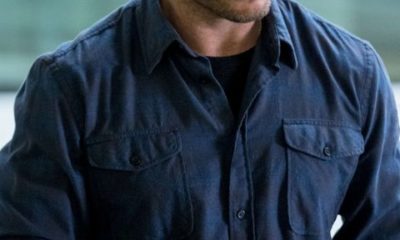

 Movies News6 years ago
Movies News6 years ago
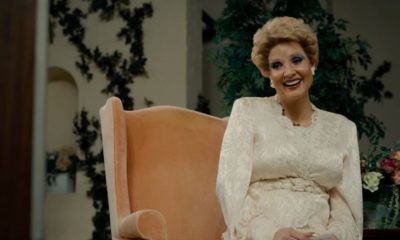

 Movies News4 years ago
Movies News4 years ago
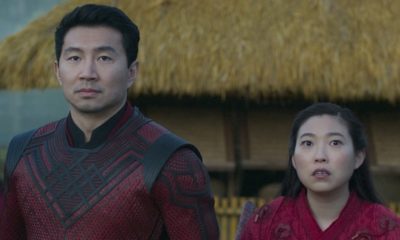

 Movies News4 years ago
Movies News4 years ago
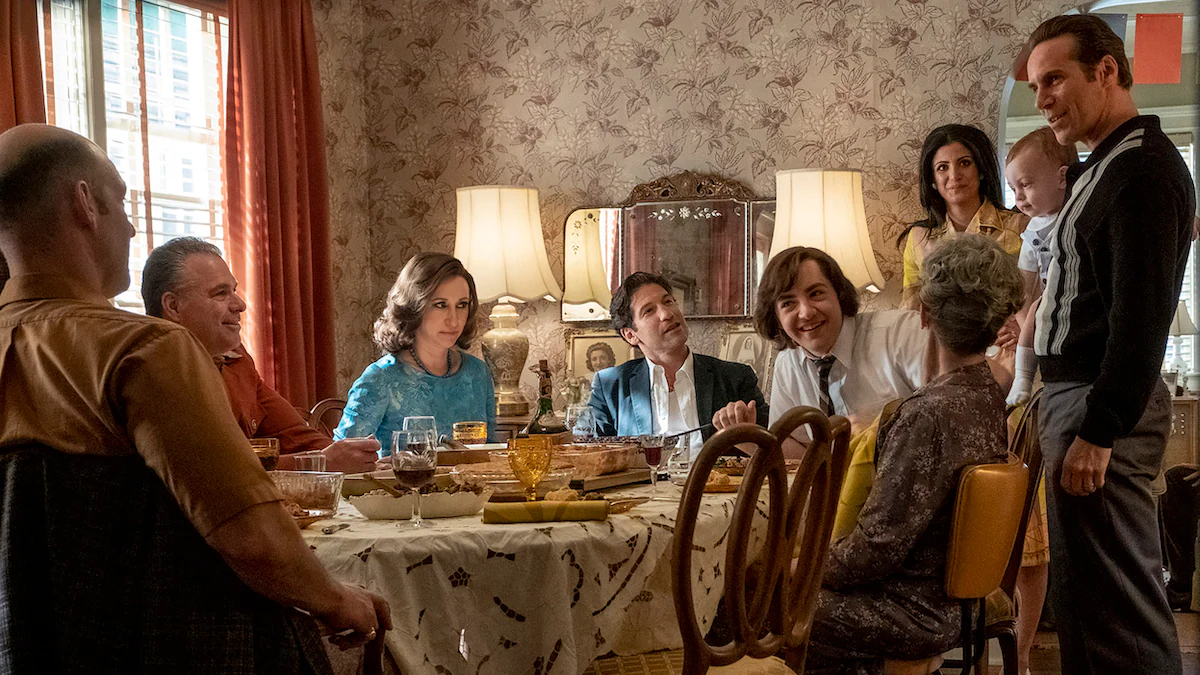

 Movies News4 years ago
Movies News4 years ago
